Malala in America: Advocate talks to sold-out crowds in California about young women's rights, Islam and extremism
Award-winning author, Khaled Hosseini, tells crowd Taliban 'shot the right girl' but 'the wrong girl' as well
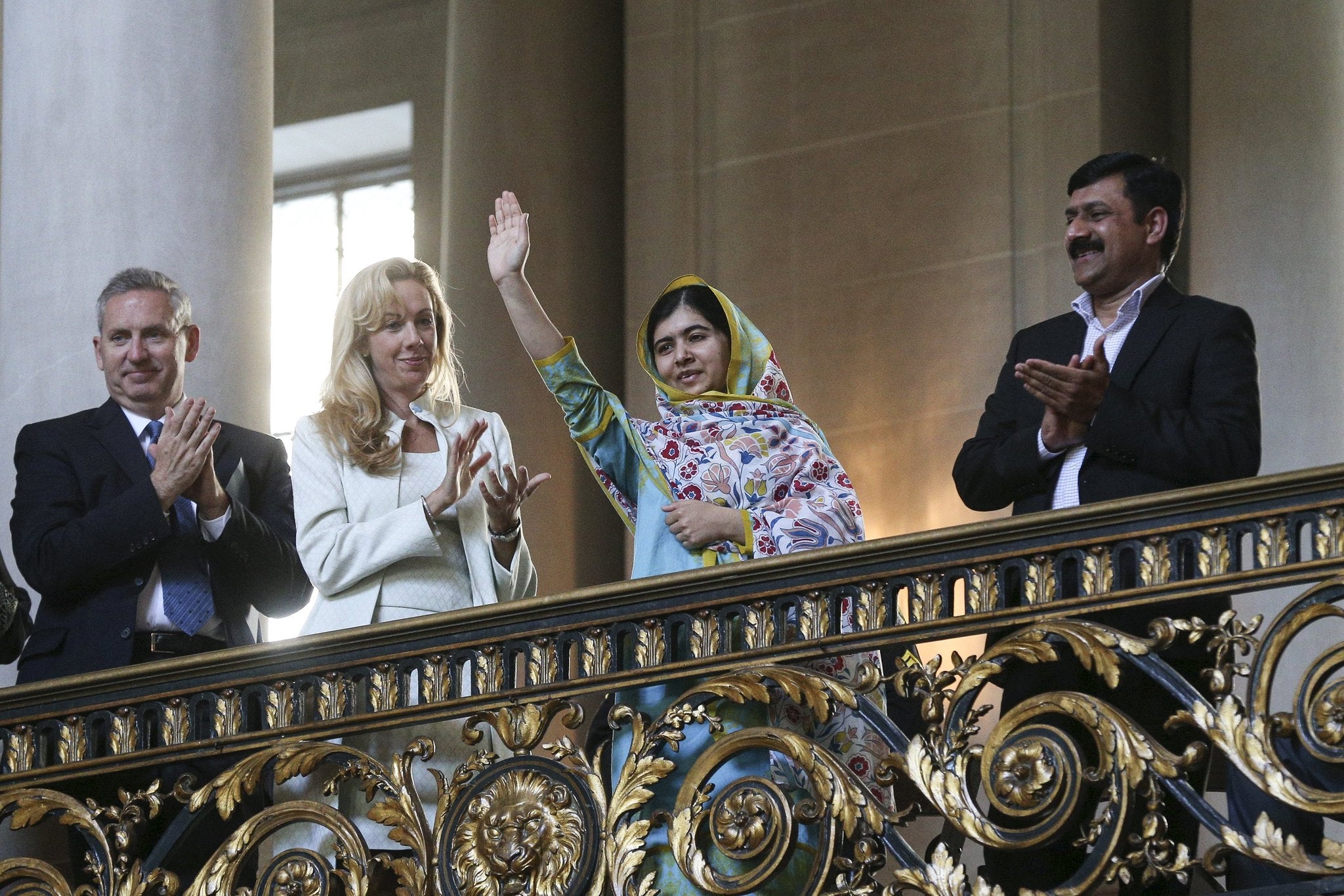
Your support helps us to tell the story
From reproductive rights to climate change to Big Tech, The Independent is on the ground when the story is developing. Whether it's investigating the financials of Elon Musk's pro-Trump PAC or producing our latest documentary, 'The A Word', which shines a light on the American women fighting for reproductive rights, we know how important it is to parse out the facts from the messaging.
At such a critical moment in US history, we need reporters on the ground. Your donation allows us to keep sending journalists to speak to both sides of the story.
The Independent is trusted by Americans across the entire political spectrum. And unlike many other quality news outlets, we choose not to lock Americans out of our reporting and analysis with paywalls. We believe quality journalism should be available to everyone, paid for by those who can afford it.
Your support makes all the difference.Cracking jokes about her family and recalling her home in Pakistan, Malala Yousafzai had a weekend unlike many other teenagers’ as she continued to captivate audiences across America with a series of lectures in her latest tour of the country.
Speaking to a sold-out Californian crowd at San Jose State University’s multi-million dollar Event Centre arena, the 17-year-old Nobel Peace Prize winner said her advocacy is down to her father, Ziauddin Yousafzai, who ignited her love for learning after he built a school when she was young.
But, even fathers and daughters don’t always get along as she told the chuckling audience: “I do have an inspiring father, but I do fight with him.
“We’re not perfect. I mean, we just had a fight in the car.”
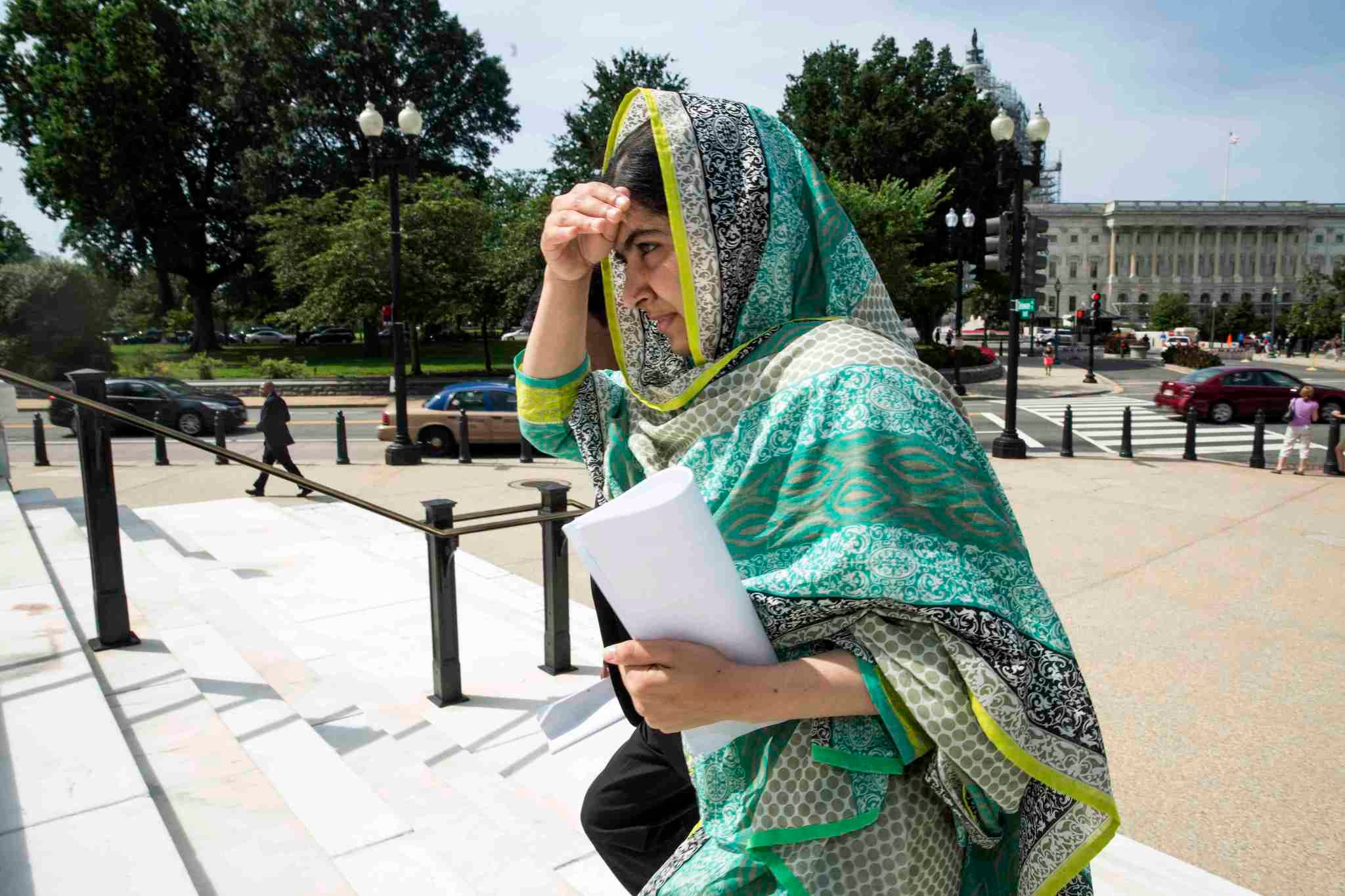
Sitting on-stage with the award-winning author of The Kite Runner and A Thousand Splendid Suns, Khaled Hosseini, Malala said she was grateful she didn’t remember the moment she was shot in the face by a member of the Taliban in 2012 as she made her way home from school with friends.
“Technically, he shot the right girl,” said Hosseini, adding that: “in every way, he shot the wrong girl” as well.
“If the gunman thought he was going to quiet her with his bullet – end her story with his bullet – he was wrong,” Hosseini added.
“Malala’s story is merely beginning.”
In her hour-long interview with the author, Malala spoke, at length, about her unbending devotion to educating women and hopes for peace between nations.
More than 66 million girls around the world do not have access to education, she told a stunned audience, and in her home region of Pakistan, only one in five girls is allowed to go to school.
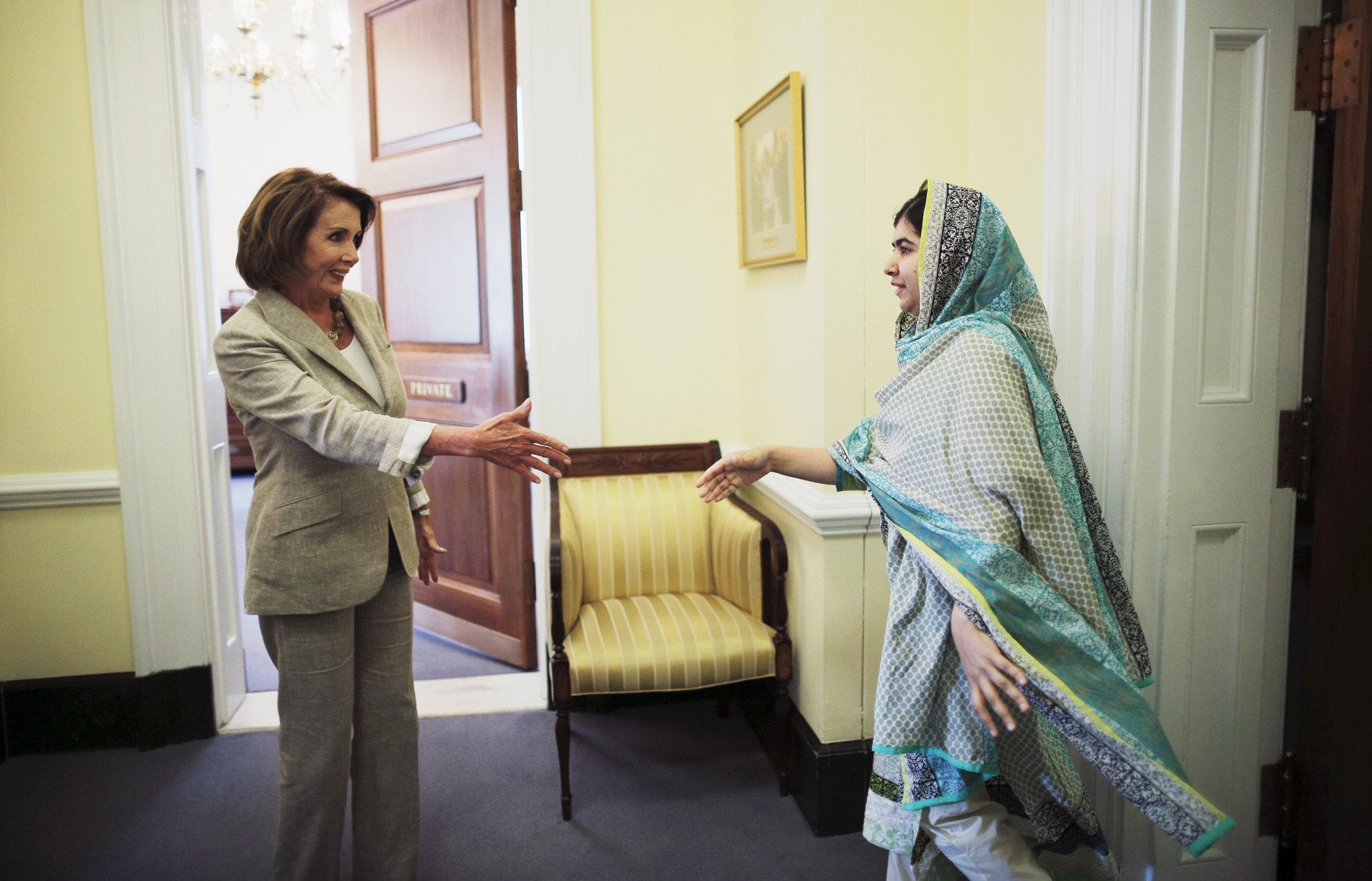
Malala went on to explain just how strongly she supports the allowing of girls to attend school, all over the world, so they can learn to read and write – but she also advocated for young women to be seen as individuals. Young girls, she said, have to be free from the constraints of societal pressures which see them as being inferior to men.
The young laureate – who passionately pushed for understanding and peace during her time on the stage – explained the world cannot change for the better if cultures stay stuck on misperceptions of right and wrong based on ideologies promoted by small but influential groups in power.
“If I wouldn’t have chosen to speak, then I would have had to continue my whole life in a situation of terrorism,” she told the crowd. “If you want to change society – if you want to see change – you must step forward to bring change.
“And I’m standing here and seeing people standing with me on this campaign of education – for every girl around the world.”
The following day, on Saturday June 27, the youngest-ever recipient of the Nobel Prize moved on to the Arlington Theatre in California’s Santa Barbara where long queues awaited her, once again, at the sold-out event.
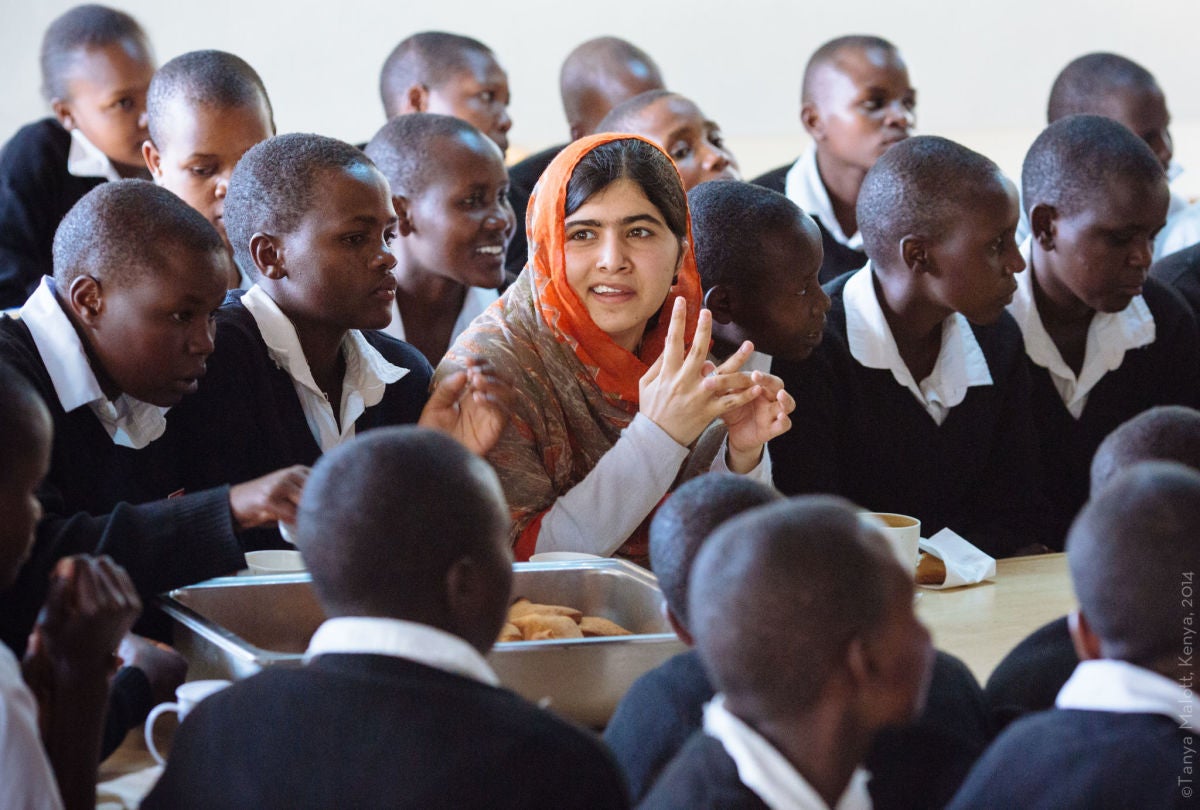
Demand for this event was so high that it was simultaneously broadcast to packed auditoriums at the nearby New Vic Theatre and the University of California, Santa Barbara’s Campbell Hall as well.
Here, Malala recalled her upbringing in the “paradise” that was the Swat Valley region in North Pakistan which was, eventually, overrun by the Taliban when she turned ten.
After that happened, she said, public beatings and executions became the norm, freedom of expression was obliterated and the oppression of women became all-too-frequent.
Young girls were forbidden to go to school and the militant group destroyed more than 400 schools in the area, she remembered.
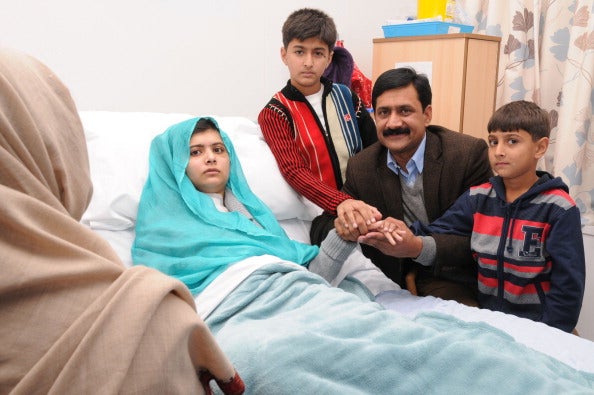
She thanked her mother and father for getting her to where she is today after they encouraged her to pursue the route of education and speak out against the rights of other young girls who were denied the right to books: “It’s our future, not just their future,” she said to rapturous applause.
When asked what she had to say about the high school dropout rate in America, Malala looked dismayed and urged students to remember that, in many parts of the world, young children are constantly fighting for their right to receive quality, free education.
Students in the developed world, she said, should not take that for granted, adding: “They should be very thankful to God.”
Rounding-off on her thoughts on Islam and terrorism, the teen said she believes extremism is fuelled by poverty, other environmental factors and when “people are not allowed to interpret the Qur’an in their own way.”
“My Islam means peace, education and speaking up for what’s right,” she said.
Malala is currently promoting her upcoming docu-film, He Named Me Malala, which is scheduled for cinema release in October 2015. Watch the trailer:
Subscribe to Independent Premium to bookmark this article
Want to bookmark your favourite articles and stories to read or reference later? Start your Independent Premium subscription today.
Join our commenting forum
Join thought-provoking conversations, follow other Independent readers and see their replies
Comments